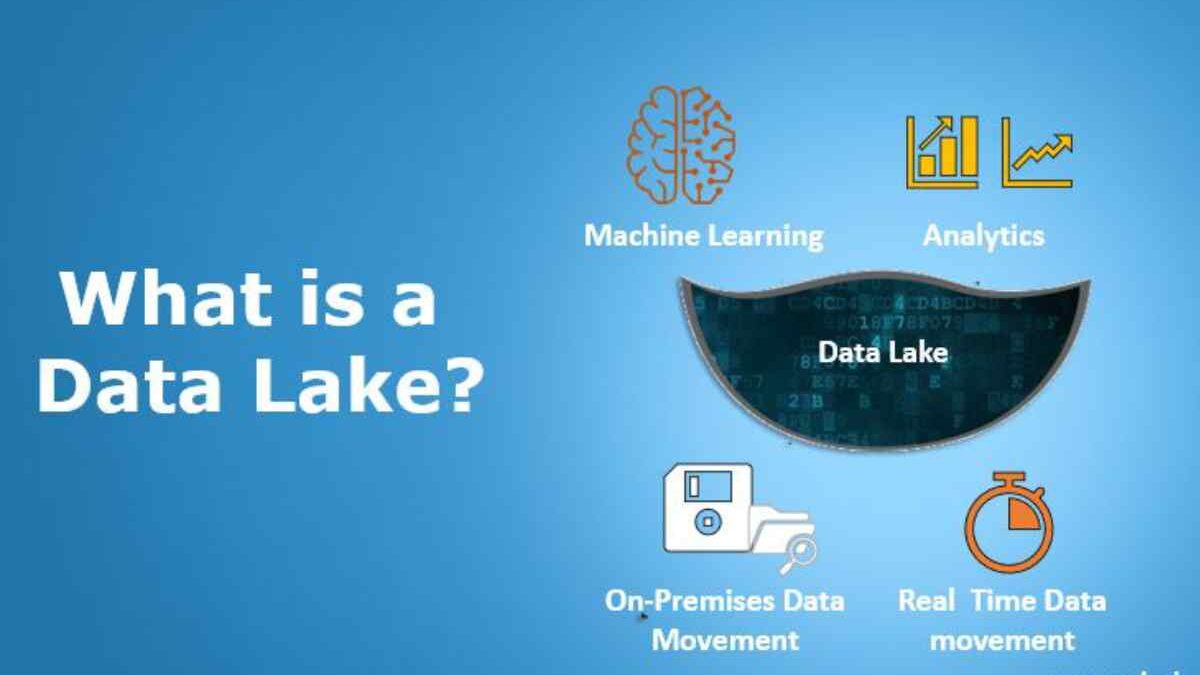The phrase “Data Lake” was coined by James Dixon, who was appointed Chief Technology Officer and one of the founders of Pentaho in 2010. A data lake is a data repository that keeps data in its original format or raw form. A data lake can hold a variety of data kinds, including structured data, semi-structured data, unstructured data, and binary data. It translates to it being able to store a wide range of file formats, including CSV, XML, PDFs, pictures, video, and so on. A well-designed Data Science course may help you explore the notion of data lakes offered by companies such as Google, Oracle, Amazon, and MongoDB.
Table of Contents
Data Lake Definition
Described, a data lake is a sort of architecture that stores large volumes of data in raw or native forms until it is needed. Compared to data silos, data lakes are far more efficient and effective. PricewaterhouseCoopers, or PWC for short, has also predicted that data lakes will soon replace data silos. In addition, unlike data homes, data lakes store data in a flat architectural style. PWC also stated that many firms would employ Hadoop-based solitary data repositories.
A data lake is often a single data storage location that holds raw or original copies of the source system and sensor data and converted data, which may then uses for displaying, reporting, sophisticated analytical processes, and machine learning. Because data lakes rely on Hadoop. They may also design to run on less expensive essential gear clusters, which contributes to enhances scalability. It is causing data dumping in data lakes to become more frequent for enterprises to alleviate concerns about on-premise or internal storage capacity. In the case of data lakes, clusters run to either in the cloud or on-premises.
Data Lake Advantages
The fundamental advantage of data lakes that we can all agree on is that any data can house a single storage site. Reducing corporate expenditures. Organizations may acquire significant insights quickly and at any moment by utilizing all accessible data. Here are a few more advantages of adopting data lakes.
Data of higher quality
Data lakes provide massive processing power, ensuring that data quality is not compromised.
Schema Flexibility and Adaptability
Data modeling occurs during the discovery and exploration of data for the purposes of analytics and insight. Data lakes reduce the need to model data during the intake phase. It is also highly scalable and less expensive than other technologies such as data warehouses. It is also quite adaptable, with the ability to store multi-structured data from various sources.
Support for a Variety of Languages
Unlike other data storage technologies, data lakes offer a wide range of languages. In addition to SQL, data lakes enable PIG and Spark MLib for sophisticated data analytics and machine learning. A comprehensive data science education highly recommends learning the languages needed to use different tools to leverage data lakes efficiently.
Encourages Advanced Analytical and Analytics
Data lakes excel in rapidly utilizing the accessible amounts of big data store within their architecture with the assistance of deep learning and machine learning. Which also adds to live feedback and near real-time decision-making analytics.

